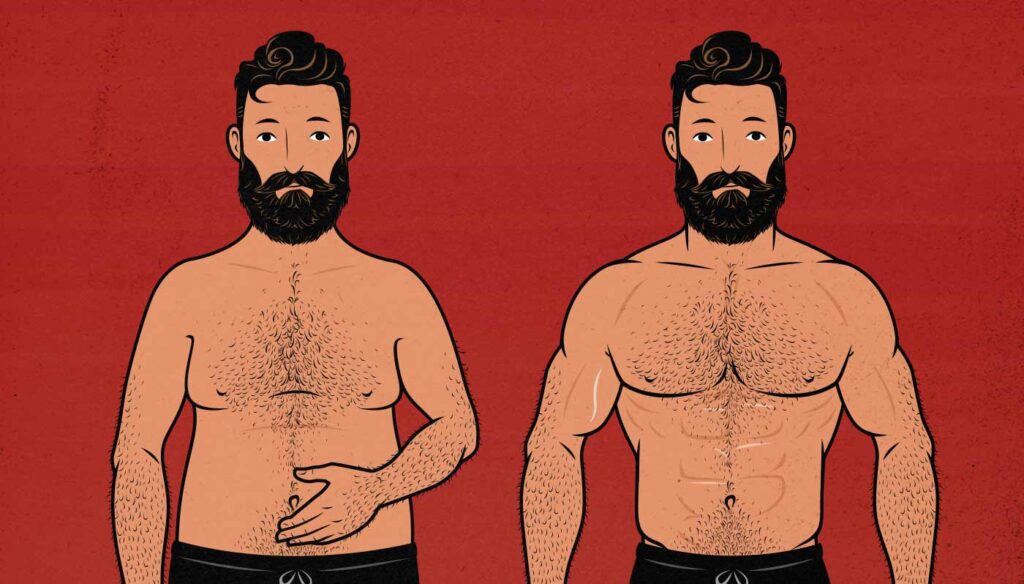
The Best Supplements for Burning Fat & Building Muscle
There are a few supplements that are good for both building muscle and losing fat, making them perfect for body recomposition. They all fall into one of three categories:
- Protein Supplements. Eating enough protein helps us gain or maintain muscle mass while burning fat. A good example is whey protein.
- Muscle-Building Supplements. Supplements that increase our rate of muscle growth, improve our hormones, or help us manage our stress can shuttle nutrients toward muscle growth instead of fat storage, making us stronger and leaner. The best example is creatine.
- Ergogenic supplements. If a supplement gives us the energy to move more, be more consistent with our workouts, or push ourselves harder while working out, then it can help us burn more calories and stimulate more muscle growth. The best example is caffeine.
Let’s go into each of those three categories in more detail.
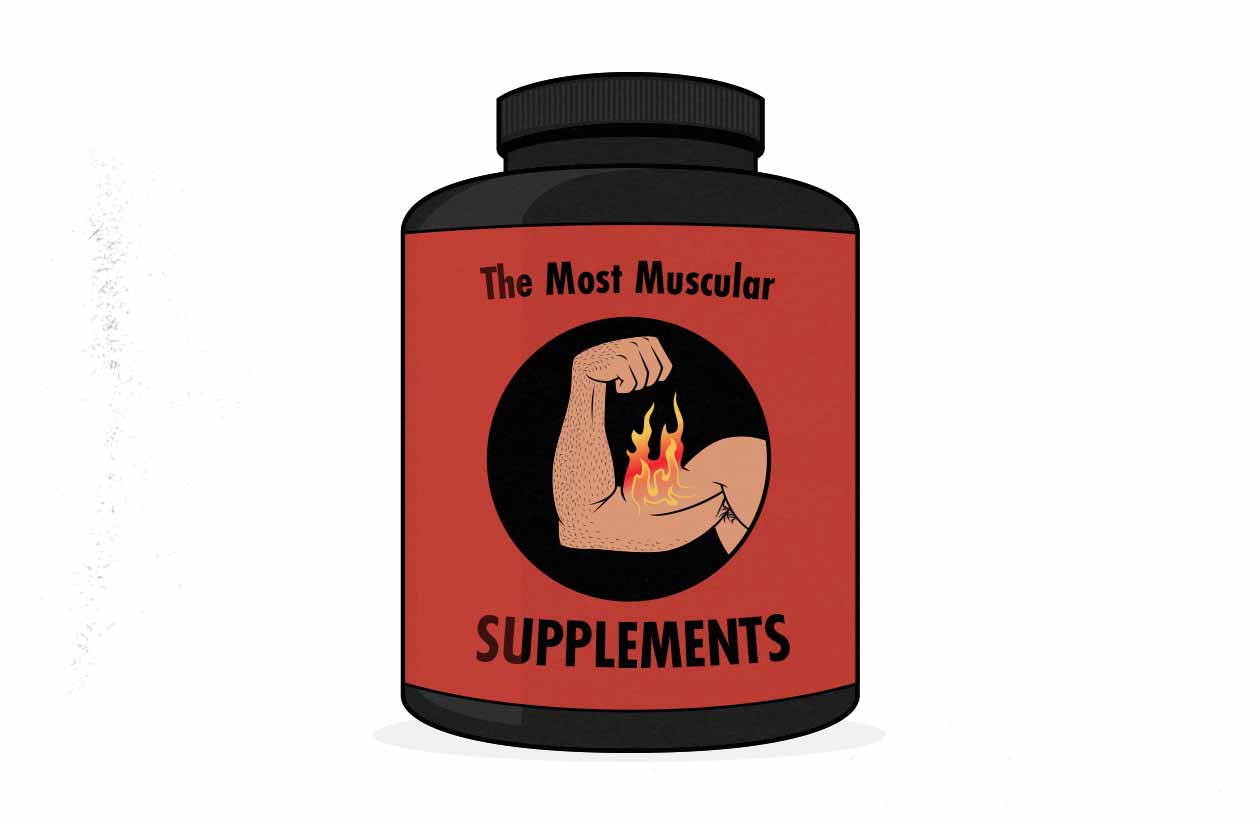
Introduction
In our article for skinny-fat guys, we talk about the five things you need to do if you want to build muscle, lose fat, and improve your body composition over time:
- Lift Weights
- Eat Enough Protein
- Get Enough Good Sleep
- Live a Generally Healthy Lifestyle
- Adjust Your Calorie Intake to Match Your Goals
There might be some magic bullets out there, but your body fat isn’t a werewolf, and it’s better slain by more conventional methods. Still, some supplements can make it easier to build muscle, burn fat, and achieve the elusive goal of doing both at once—body recomposition.
Protein Supplements
In this study, the participants were put on a weight training program and given a weight-loss diet. One group ate 0.5 grams of protein per pound bodyweight per day while the other ate twice that. For a 150-pound man, that’s 75 grams versus 150 grams of protein per day. Here’s what happened:
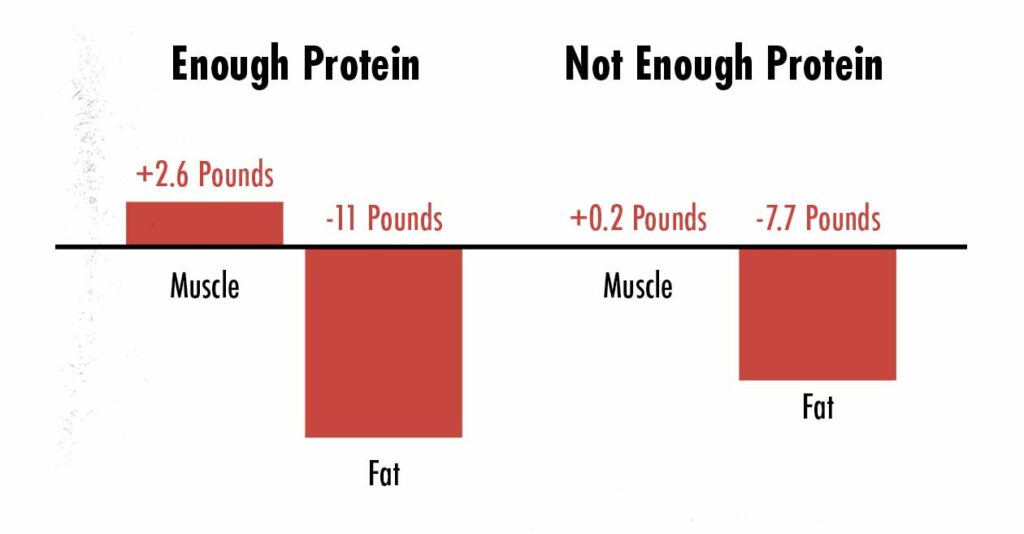
Both groups lost a comparable amount of weight—around 8 pounds—but the group who ate enough protein gained 2.6 pounds of muscle, whereas the group that didn’t only gained 0.2. This shows that a calorie deficit causes weight loss, and eating enough protein encourages body recomposition.
You can get your protein from whole foods or supplements. The best food sources of protein are lean cuts of meat, chicken breast, fish, greek yogurt, pumpkin seeds, legumes, peas, soy, and whole grains. But if you’re finding it hard to get your protein from whole foods, supplements can make it easier.
Whey protein is the gold standard of protein supplements. It’s minimally processed, has a perfect mix of amino acids for stimulating muscle growth, and has a ton of research proving its safety and efficacy (study, study). But there are plenty of other good alternatives:
- Pea/rice protein powder is great for people eating plant-based diets.
- Casein protein powder is great to have before bed.
- Protein bars, such as Quest Bars, are more filling.
The important thing is to eat at least 0.7 grams of protein per pound bodyweight per day. That’s what will help you gain or maintain muscle mass while losing weight. Supplements can make that easier, but you don’t need them.
How to take protein powders: have as much protein powder as you need to hit your daily protein targets. I’d try to get enough protein from whole foods that you only need 0–2 scoops of protein powder per day. Most people tolerate whey protein quite well, but if you get diarrhea, that can be a sign that you’re overdoing it. My favourite brand is Optimum Nutrition.
Muscle-Building Supplements
Creatine for Muscle Growth
Of all the muscle-building supplements, creatine is by far the most powerful (study, study, study, study). It increases our rate of muscle growth by around 33% on average, at least during the first few months of taking it (research breakdown).
When more calories are being shuttled towards muscle growth, fewer are left to be stored as fat. Indeed, most creatine studies show people gaining about 3 pounds of lean mass while losing a pound of fat (explanation).
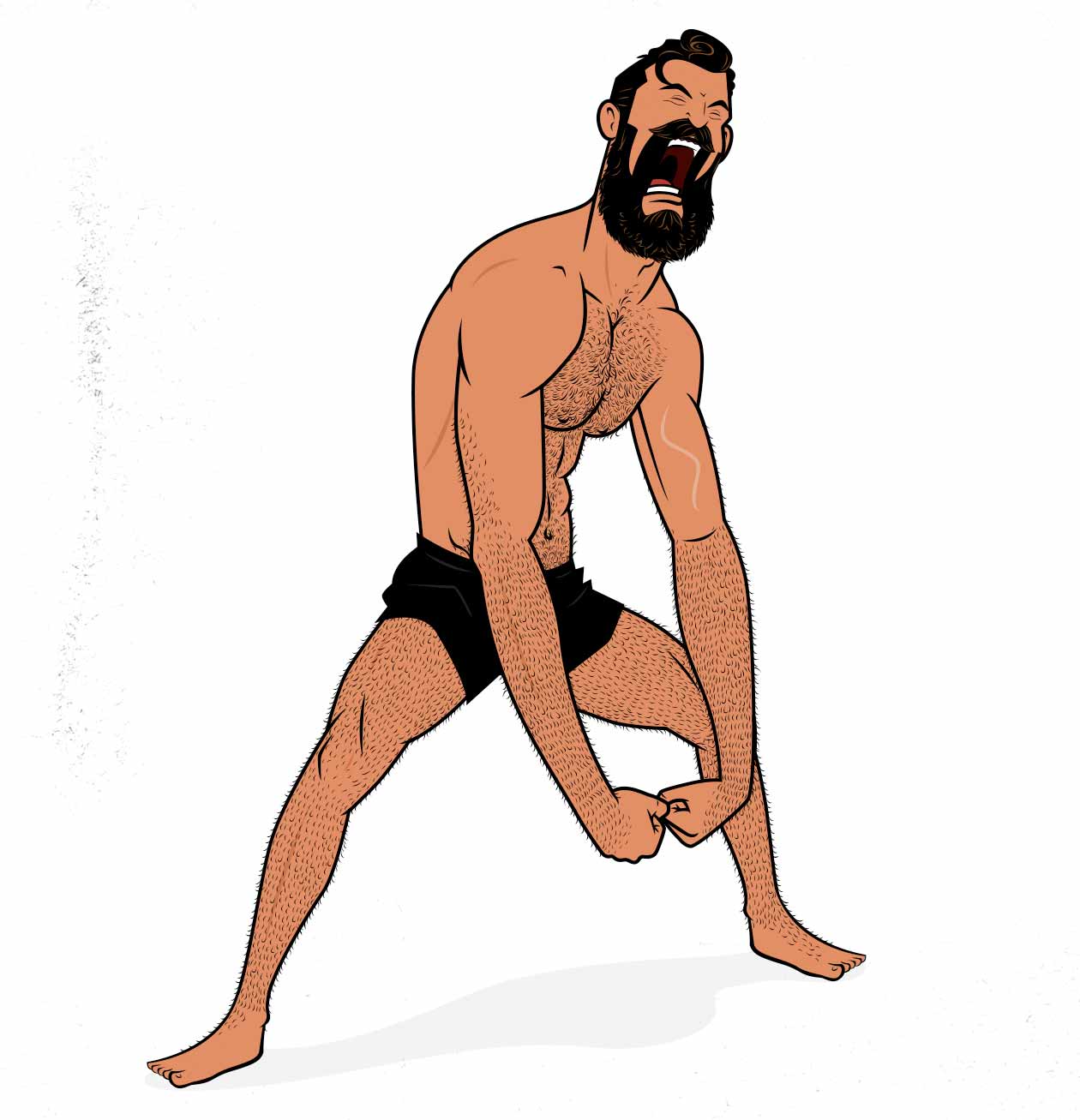
What’s neat about creatine is that it improves our results in a couple of complementary ways:
- Creatine allows us to eke out a couple of extra reps when lifting in the moderate rep range (6-20 reps), which is the best rep range for building muscle. This can be a real boon when losing weight, which can make it harder to train as hard.
- Creatine improves our ability to build muscle, allowing us to gain additional muscle mass. Again, this is a huge benefit when losing weight, as losing weight makes it harder to build muscle.
There are a few other supplements that have similar effects, with a notable example being beta-alanine. The effects are smaller and less reliable, though, and create a sensation of being consumed by a swarm of spiders. So we don’t typically recommend it unless someone is really enthusiastic about taking supplements.
How to take creatine: the ideal dosage is 3–5 grams dissolved in a glass of water, taken once per day. It can be taken at any time of day, but we recommend first thing in the morning (which may help you wake up) or right after working out (which may slightly improve results). My favourite brand is AllMax.
Melatonin for Body Recomposition
There’s another supplement that often flies under the radar when people are trying to lose weight while gaining muscle: melatonin. In a recent study, 81 women took 1–3mg of melatonin before bed every night for a year and saw a 3.4% increase in muscle size. The placebo group, on the other hand, saw a 1.9% reduction in muscle size:
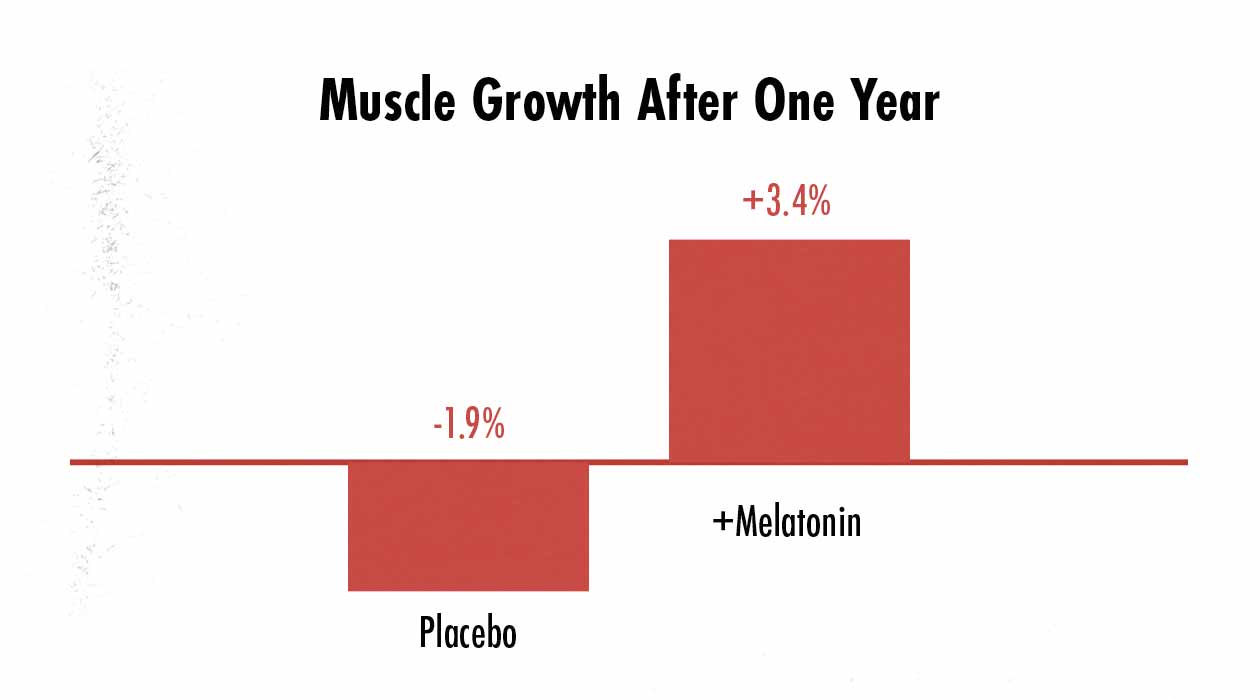
What’s even more impressive is that the melatonin group not only gained muscle, they also burned quite a bit of fat, especially when compared to the placebo group:
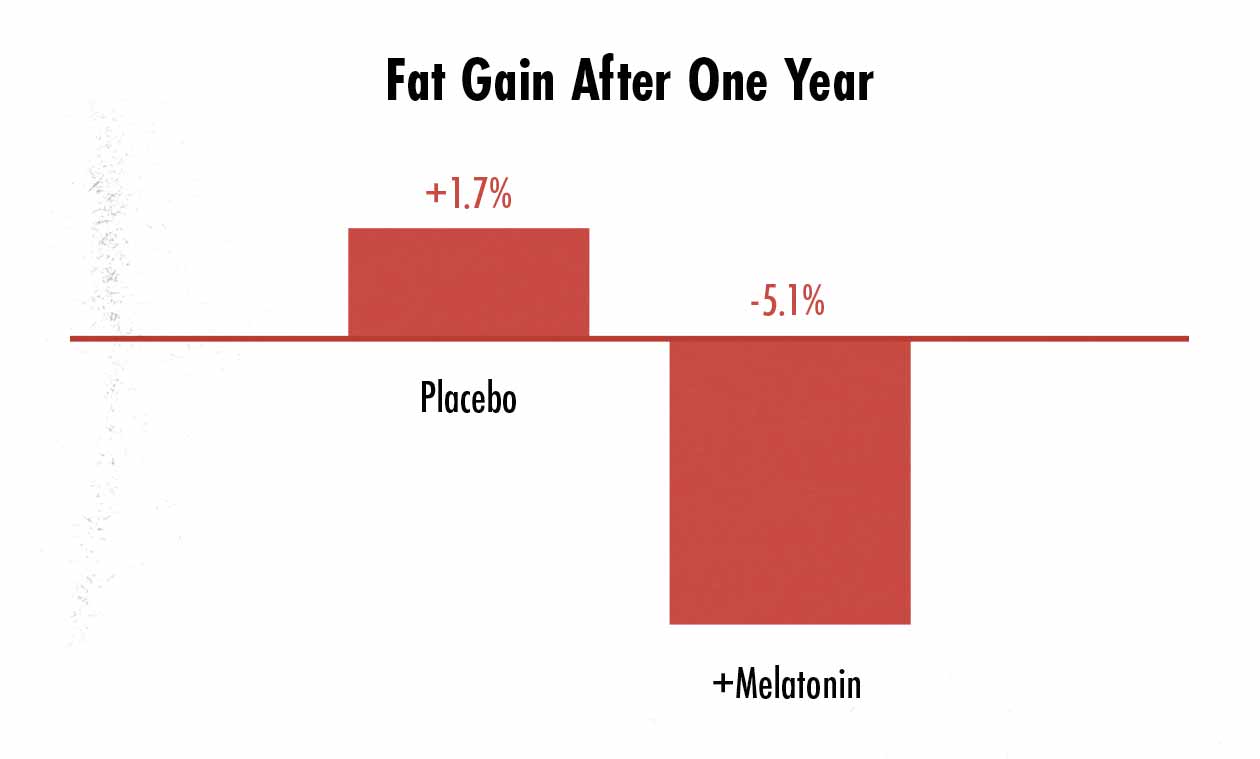
Plus, these women weren’t lifting weights, eating more protein, or doing anything else. All they did was supplement with a bit of melatonin before bed, and it helped them achieve body recomposition.
With that said, you don’t need to supplement with melatonin; you just need to get proper sleep. For example, if we look at this study, the participants were put on a weight training program and given instructions on how to improve their sleep. After only ten weeks, they were able to gain 3.7 pounds of muscle while losing 4 pounds of fat:
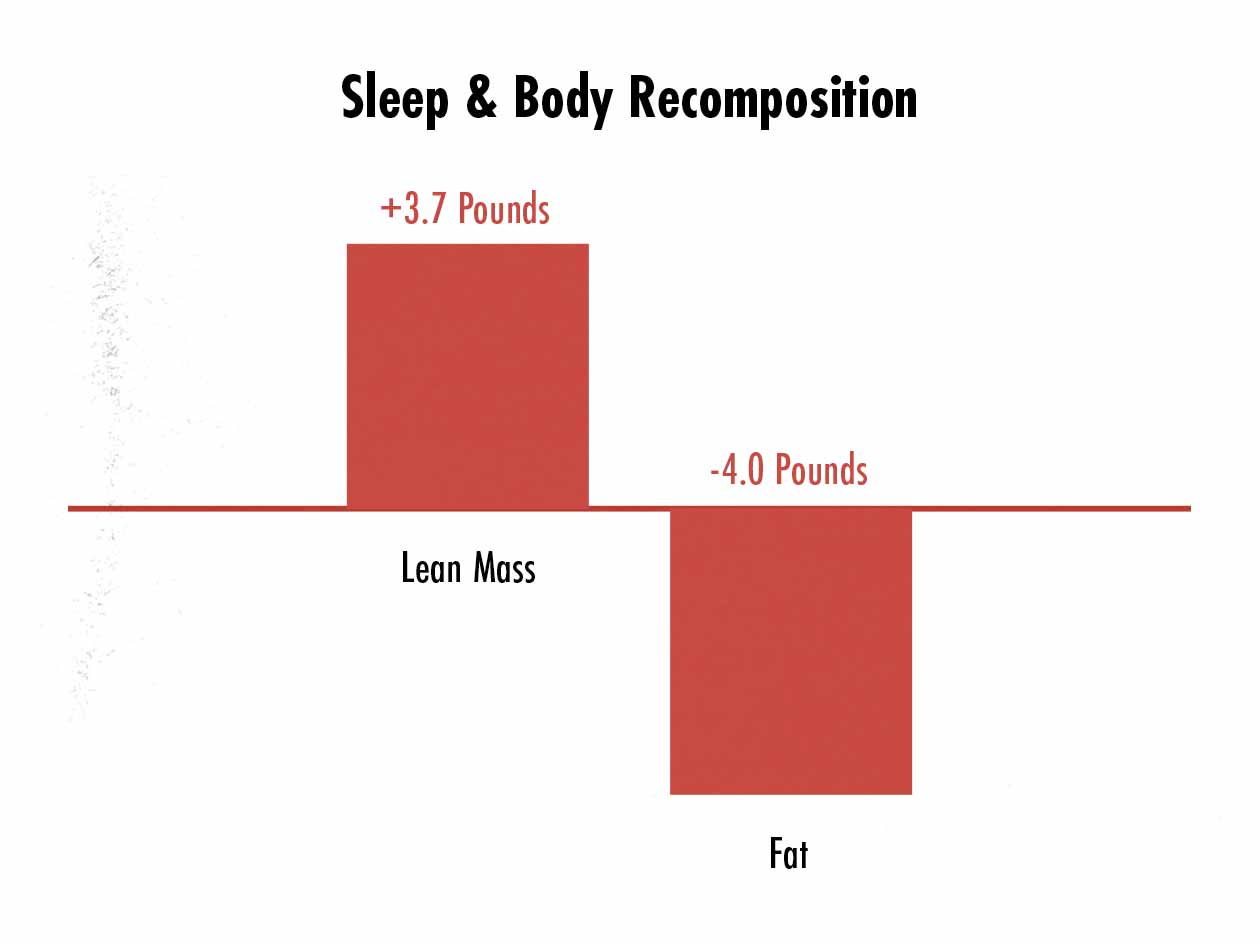
How to improve your sleep: we recommend that you start by focusing on lifting weights (which improves sleep), eating enough protein (which improves sleep), and building a good sleep routine, as explained in our article on how to improve your sleep. If you’re still having trouble sleeping, melatonin might help, but you probably won’t need it.
Ashwagandha
A recent study came out showing that ashwagandha can help with building muscle, burning fat, reducing stress, and improving testosterone production. More specifically, the 8-week study found a 15% greater increase in testosterone and a 44-pound greater increase in bench press strength when compared to the placebo group, as well as some modest improvements to body composition.
Does this make ashwagandha a good supplement for building muscle while losing weight? Maybe! There don’t seem to be any real downsides to taking it. But the effects are fairly mild compared to creatine and getting enough good sleep each night.
Ergogenic Supplements
The most important part of building muscle is constantly striving to outlift ourselves. Every workout, we need to add a little bit of weight to the bar or fight for an extra rep. That’s how, over time, we become bigger, stronger, and more muscular.
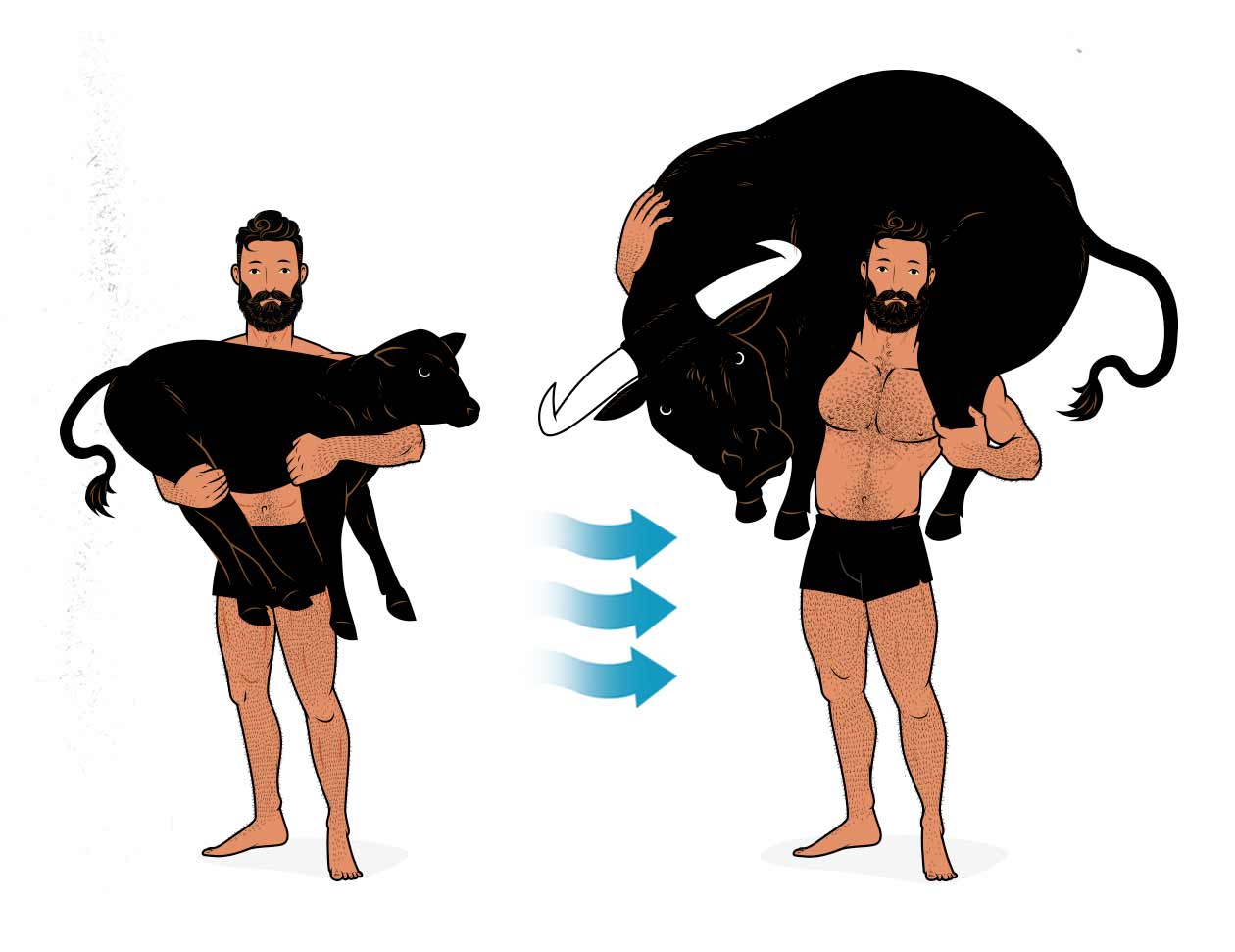
“Ergogenic” supplements improve our physical performance. For example, when you drink coffee, you feel more energetic, you can push yourself a bit harder, and you’re a bit less sensitive to the pain of working out. That can make it easier to outlift ourselves, which can lead to gradual increases in muscle mass over time.
Now, caffeine isn’t like creatine. It doesn’t directly improve our ability to build muscle. But it does help us show up to our workouts, give them our best effort, and enjoy them a bit more. If that’s a limiting factor for you, caffeine can help.
There are other supplements that fall into this category, kind of. Anything that you’d find in a typical pre-workout supplement or energy drink, such as theanine, taurine, or citrulline, might help a little bit. But there’s not very much research there, and the effects are likely modest.
How to take caffeine: most studies use fairly high doses of caffeine, and you probably wouldn’t want to imitate them, lest you interfere with your ability to get a good night’s sleep. I’d recommend sticking to coffee or tea, or perhaps a pre-workout supplement or energy drink when you really need it. Anecdotally, a lot of lifters swear by sipping on strong black coffee while lifting weights, myself included.
Summary
The most important parts of building muscle while losing weight are:
- Lifting Weights
- Eating Enough Protein
- Getting Enough Good Sleep
- Living a Generally Healthy Lifestyle
- Adjusting Your Calorie Intake to Match Your Goals
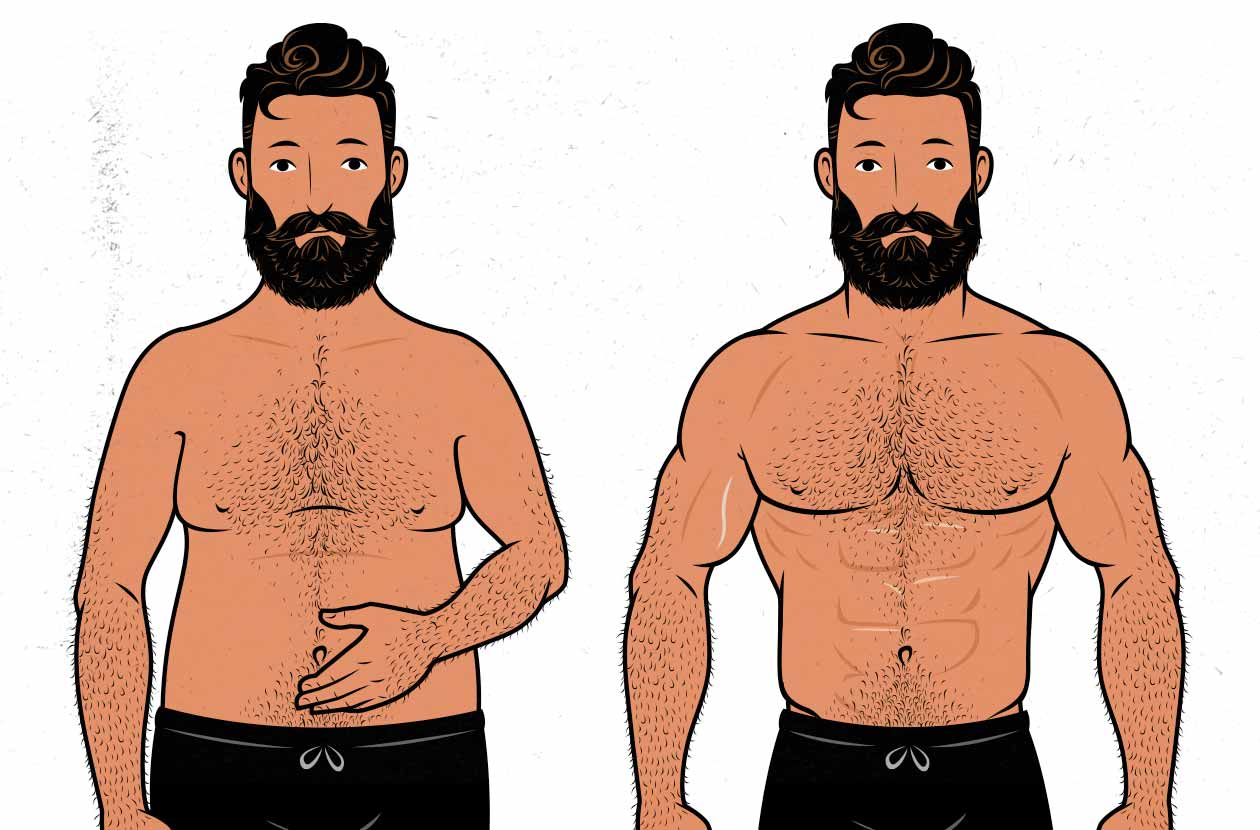
Still, some supplements make it easier to do those things. For example, protein powders make it easy to eat enough protein. Other supplements, such as creatine, improve our ability to build muscle. And others, like caffeine, can help us push ourselves in the gym, even when we’re tired.
The best supplements for building muscle while losing weight are:
- Protein powders make it easier to eat more protein, allowing you to gain or maintain your muscle mass while losing weight.
- Creatine improves our workout performance, increases our lean mass, and improves our ability to gain muscle mass. It is, without a doubt, the most powerful muscle-building supplement.
- Caffeine improves energy, reduces fatigue, and makes lifting a little bit less painful, especially when lifting in moderate rep ranges. This can help us push ourselves harder and increase our training volume.
- Melatonin: this supplement is known for improving sleep, but your body can produce it naturally if you get into a good bedtime routine. I’d recommend starting there, only supplementing if you really need to.
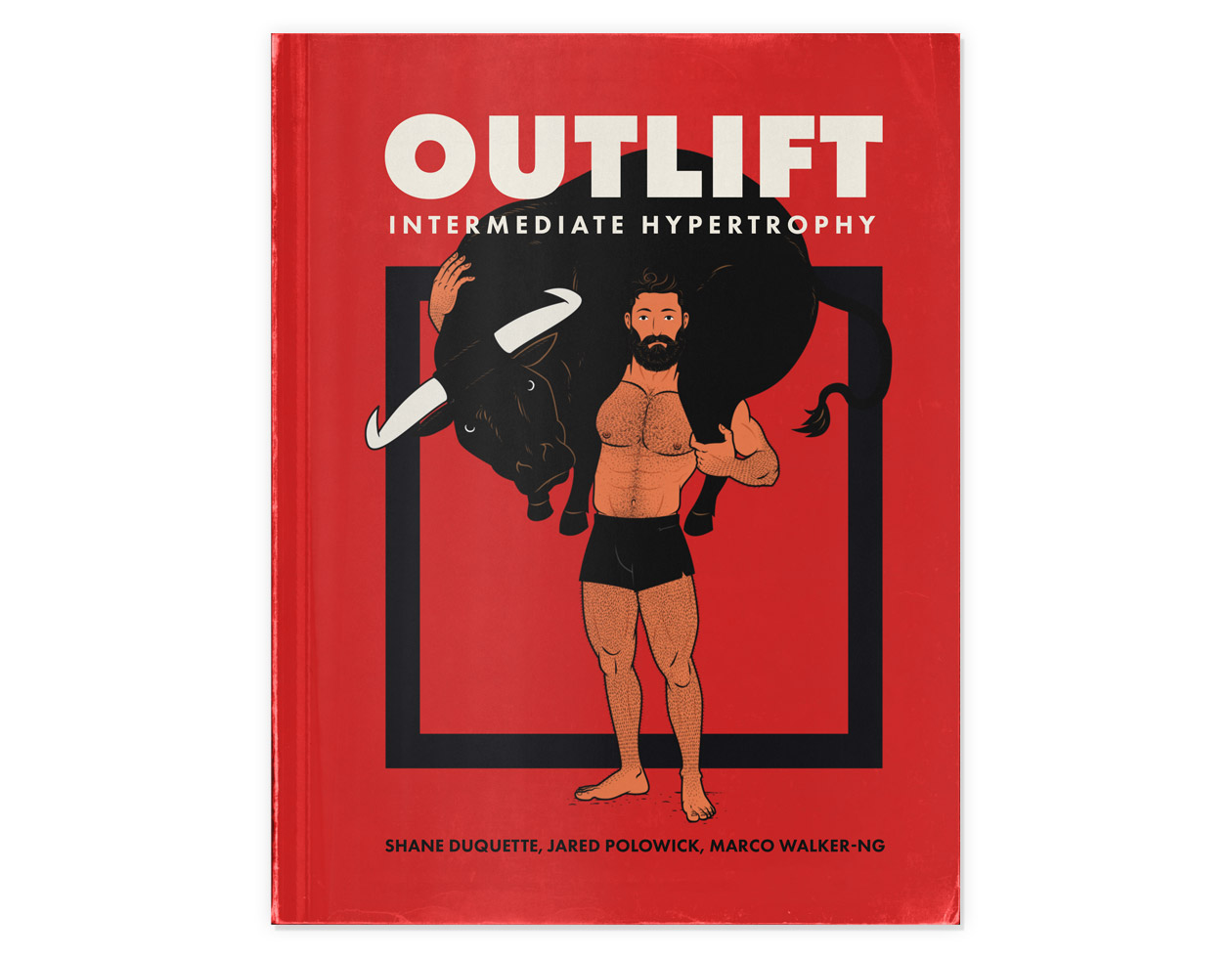
And, as always, if you want a customizable workout program (and full guide) that builds these principles in, check out our Outlift Intermediate Bulking Program. We also have our Bony to Beastly (men’s) program and Bony to Bombshell (women’s) program for skinny and skinny-fat beginners. If you liked this article, you’ll love our full programs.


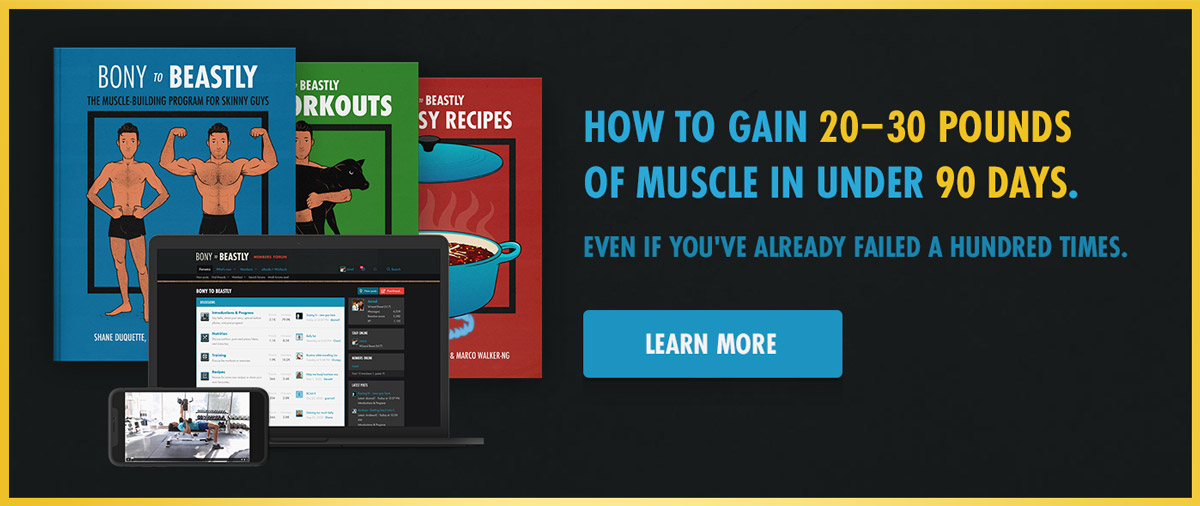
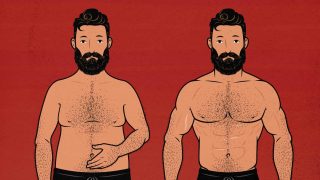
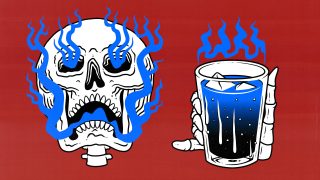
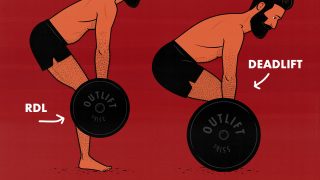
Nice new drawings;)
Thank you, Bartolomei! I’ve been trying to put in more practice 🙂
Hi Shane, having caffeine during my workouts really helps me. But it gives me stomachache (even not on a empty stomach). Wondering about those caffeine skin patches, whether they could work. Whether it’s worth trying.
Hey Tomas, yeah, you could try them.
Does having caffeine always give you a stomachache? Or just when you have it before working out?
The first thing I’d try is a lower dose to see if that solves the problem, such as having a smaller cup of coffee. Maybe it’s merely that you’re having too much. Or to get the caffeine from a different source, such as switching from coffee to an energy drink. Perhaps it’s something else about the source that’s causing the stomachache.
Hi Shane!
Great article as always. Wanted to get your take on Conjugated Linoleic Acid (CLA). Was skinny fat and I’ve been on a cut for 14 weeks now and lost about 17 lbs (now 175lbs at 6ft). Lifting 3 times a week, eating 1750 calories(175g protein), doing 16:8 IF and trying to sleep well. I don’t think CLA is some miracle supplement but would it help speed up getting ride of belly fat and increasing lean muscle? I just started trying CLA. Looking forward to getting to a bulk but want to get down to 12% body fat, I figure I am at ~18% right now.
Hey Matt, congratulations on losing those 17 pounds! That’s awesome 😀
That’s a good question. I’ve heard of conjugated linoleic acid being a good fat-loss supplement, too, but the research hasn’t been all that impressive. To quote the supplement experts over at Examine.com:
“Human studies on CLA are very unreliable and the overall effects seen with CLA are not overly potent as well as sometimes contradicting. CLA is a good research standard to investigated fatty acids and the PPAR system, but its usage as a supplement for personal goals is quite lacklustre.”
If you already have it, I’d still use it, but I don’t think it’s likely to be a supplement that will yield any major improvements.